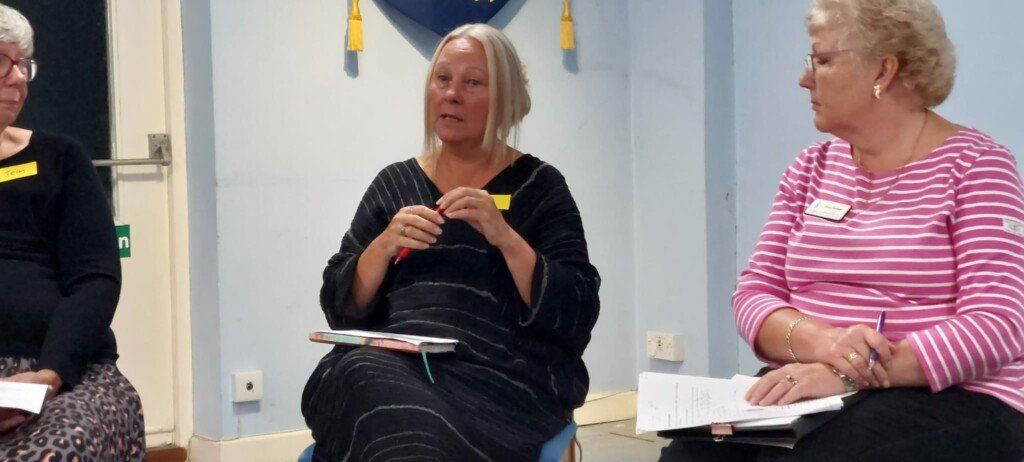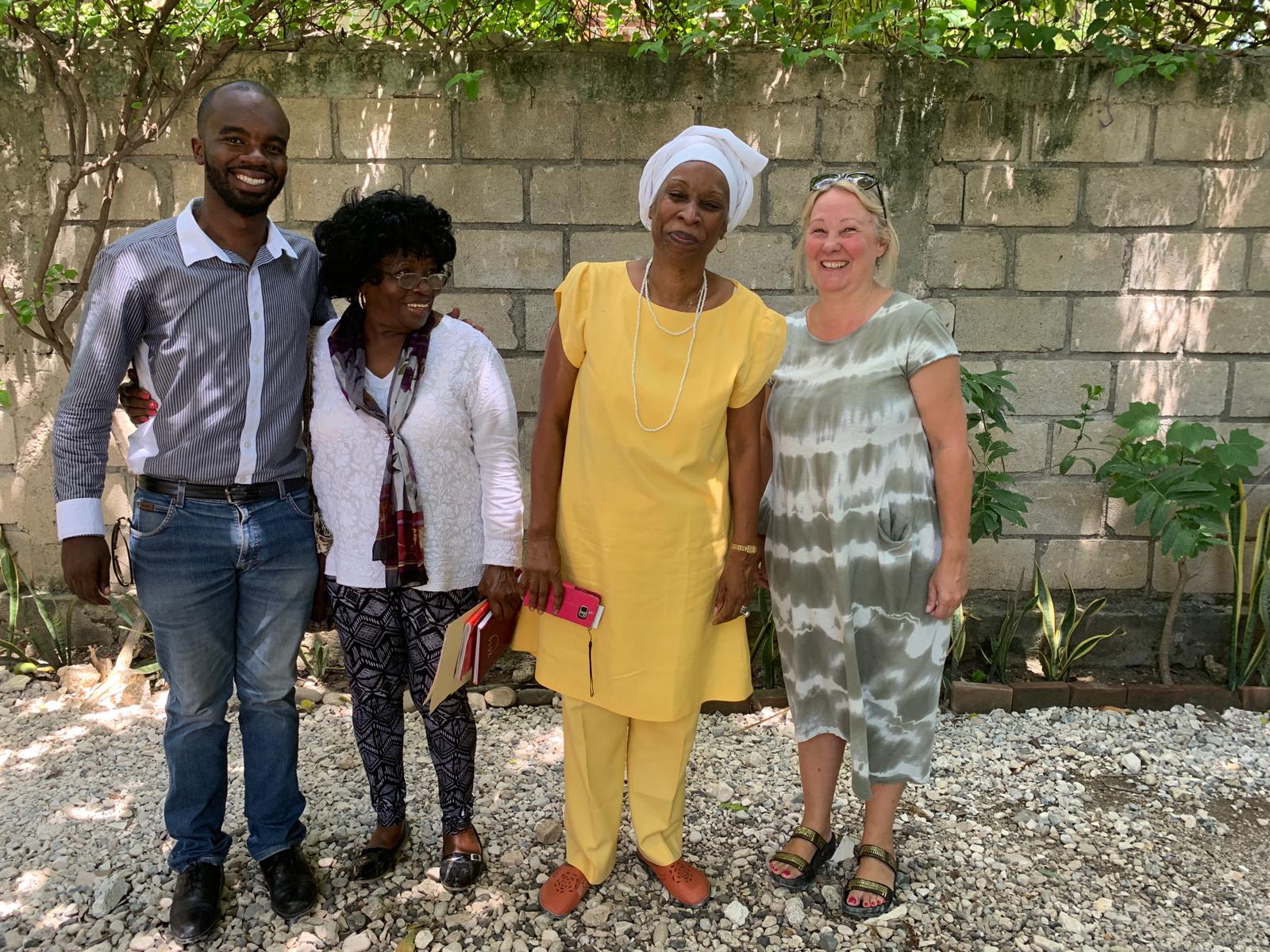A day in the life of our CEO
Our CEO, Ann Beatty gave a short talk to the St Albans Soroptimists recently on a day in the life of a CEO.

CEO sounds very grand. In a small charity like SSF with only a few employees and volunteers you have to turn your hand to many things.
Ann is normally up at 6.00 am ready for an 8.00 am start, taking calls from international partners, in West Africa for example. This morning she had calls with colleagues in The Gambia and Sierra Leone, and in between these calls found an hour to read up about a meeting scheduled for the next day. Then, when leaving to go to a meeting she discovered her car had been blocked in, causing her to worry that she might be late!
Today she is working on the Positive Periods project. Women from The Gambia taught women in Sierra Leone, then it spread to Haiti and Cuba. The project keeps growing and is now in The Gambia, Sierra Leone, Malawi, Uganda, Guinea Bissau, Cuba and Haiti. So far, this project has helped over 200,000 women make reusable period pads. The women teach other women how to do this and as you can see the training is spreading fast. This enables women and girls to participate in work and school full time and without a monthly break. The projects are set up to be sustainable. In Haiti and Cuba they are going from strength to strength and branching out with their sewing machines to make and sell other products. There is now a growing market in the UK for these re-usable pads, as women can see the benefits.
The programme has evolved too, as once women were given a safe space, they talked about other experiences over their sewing, such as gender-based violence. This inspired a new project, and now training has been set up to tackle these barriers to education too.
When asked what was the most challenging thing for the Positive Periods programme, Ann commented that they were competing with charities, and organisations, who send disposable period pads out to other countries. This creates dependency and enormous problems with their disposal for the environment.
Ann was asked whether The Steve Sinnott Foundation had sponsors. She explained that they have a main funder for projects and running costs for the next three years, and several teacher unions support the Foundation’s work. They also have funding awards, individual fundraisers, legacies, and get a small amount of income from gifts and the Life-Long Learning webinars. It is not so easy to get funding at this time, when many people in the UK are living in poverty. Ann told the Soroptimists how grateful she is for their support. As well as St Albans, the Foundation is being supported by clubs from Yorkshire and Hampshire too.
When asked what time Ann switched off, she explained that the staff working on projects in the Caribbean are running late into our evenings, but she is now making herself switch off earlier (about 8.00 pm). It is important to keep in touch, and we are running projects in many different time zones, so it is hard to have ‘normal’ work hours.
One of the Soroptimists asked how many people work for the charity in the UK. Ann said that there were three employees (including herself) but not all full time, 13 ambassadors who may or may not get some remuneration, and many volunteers. Each country has employees and volunteers too.
Ann spoke about how she had become the CEO of the Steve Sinnott foundation. After working for two years in Sierra Leone with a small charity who needed her business skills, she was the ideal candidate for helping the Foundation, a charity based in Watford who works internationally.

Being CEO of a small charity is a challenge, but one which comes with the reward of instigating change and seeing life improve for so many. The close ties built over many years, enable this small charity to be nimble and effective, respond to needs and listen to local communities to make sure they can make the changes that they need.




